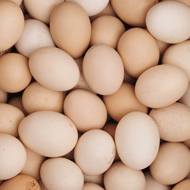New process could end culling of male chicks

The SELEGGT process negates the need to incubate male eggs and cull them on hatching.
Germany could be one step closer to ending the culling of male chicks in hatcheries, as scientists introduce a new method of gender identification.
In Germany alone, 45 million male chicks from laying hen breeds are culled each year as they do not fatten enough meat. The Federal Ministry of Food and Agriculture (BMEL) provided a €5 million grant to develop a method of gender identification in hatching eggs.
Now market-ready, the process - developed by SELEGGT - negates the need to incubate male eggs and cull them on hatching. It uses a laser to burn a hole of no more than 0.3mm into the shell of the hatching egg. A small amount of allantois fluid is then placed on a patented marker outside the hatching egg.
A colour change indicates the presence of the hormone estrone sulphate, which shows that the developing egg is female. The egg does not need to be resealed after identification, as the inner membrane mends itself and closes the tiny hole from within.
Only female chicks will hatch on the 21st day after incubation; male eggs will be separated and processed into animal feed. According to SELEGGT, the test has an accuracy rate of around 98 per cent.
Federal minister of food and agriculture, Julia Klöckner, commented: “This is a great day for animal welfare in Germany! In this way we will set the pace in Europe…
“…once the process is made available to all and the hatcheries have implemented the process, there will be no reason and no justification for chick culling.”
The first table eggs from laying hens that have gone through the process are now available in 223 REWE and PENNY stores in Berlin. A national launch is planned for all of the REWE Group’s 5,500 stores in Germany in the upcoming year.
SELEGGT is working on a business model to make the technology available to the industry as a cost-neutral service. The patented process will be available to the first hatcheries in 2020.



 The Federation of Independent Veterinary Practices (FIVP) has announced a third season of its podcast, Practice Matters.
The Federation of Independent Veterinary Practices (FIVP) has announced a third season of its podcast, Practice Matters.